12 Mistakes That Can Tank Your Credit Score

12 Mistakes That Can Tank Your Credit Score
Innocent mistakes can have lasting consequences
Your credit score is one of the most important numbers in your life, whether you know what it is or not. It dictates whether or not you can borrow loans, what your credit limit is, and even whether you get hired for certain jobs. Keeping it high is essential for a smoother ride through life. That means avoiding these 12 mistakes that could weigh your score down.
Our credit card expert uses this card, and it could earn you $1,148 (seriously)
As long as you pay them off each month, credit cards are a no-brainer for savvy Americans. They protect against fraud far better than debit cards, help raise your credit score, and can put hundreds (or thousands!) of dollars in rewards back in your pocket each year.
But with so many cards out there, you need to choose wisely. This top-rated card offers the ability to pay 0% interest on purchases until late 2021, has some of the most generous cash back rewards we’ve ever seen (up to 5%!), and somehow still sports a $0 annual fee.
That’s why our expert – who has reviewed hundreds of cards – signed up for this one personally. Click here to get free access to our expert’s top pick.
Previous
Next
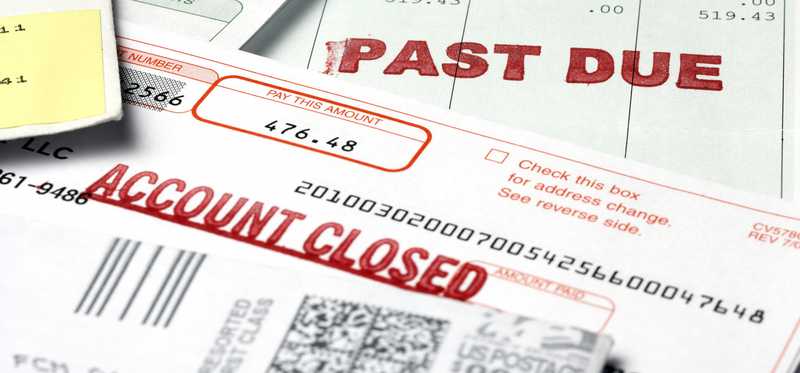
1. Paying bills late
Payment history is the single most important factor in your credit score calculation, accounting for roughly 35% of your total score. A single late payment can drop your credit score by tens or even hundreds of points, and it stays on your credit report for seven years. You need months or even years of on-time payments to recover from the damage one late payment can do, so you should always make sure to pay your bills on time.
Setting up automatic bill payments can help you avoid forgetting upcoming due dates. You could also set reminders on your phone or computer or leave notes to yourself around your home.
Previous
Next
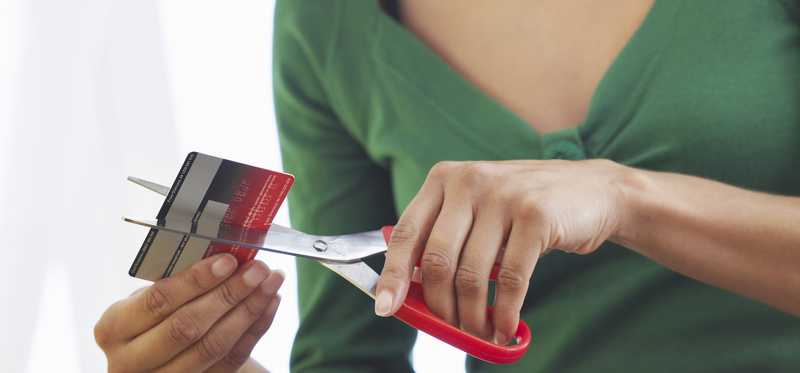
2. Closing an unused credit card
Closing a credit card lowers your credit utilization ratio. This is the ratio between the amount of credit you use every month and the amount you have available to you. You want this number under 30% -- and lower, if you can -- to keep your credit score high. Closing a credit card means you no longer have access to that available credit, which automatically raises your credit utilization ratio.
You might be better off leaving your unused credit account open if the card doesn't charge an annual fee. But if it does have a fee or you're determined to close it, limit yourself to one credit account closure every six months or so to minimize the effect it has on your credit score.
Previous
Next

3. Not checking your credit report regularly
Your credit reports are what your credit score is based on. They contain details of every loan and credit account in your name, including payment history and balances. But that doesn't mean all the accounts on your credit report belong to you. If an identity thief opens a fraudulent account in your name, this will also affect your credit score. Sometimes financial institutions make mistakes, too, like not reporting that you've paid off an old loan.
You're entitled to one free credit report per bureau per year through AnnualCreditReport.com, and right now, you can get free weekly credit reports through April 2021. Look yours over at least once per year and make sure everything is accurate. If you notice something that looks off, contact the credit bureau and the financial institution associated with the odd report to dispute it.
Previous
Next

4. Maxing out your credit cards
Credit cards can seem like a lifeline right now, especially to those who don't have a steady source of income due to the pandemic. But charging a lot to your credit cards can hurt your credit score and cause long-term financial problems. It comes back to your credit utilization ratio again. If you're routinely maxing out your credit cards, you'll have a credit utilization ratio of close to 100%, which sends up a huge red flag that you can't afford your lifestyle.
It can also lead to costly debt. Credit card interest rates can be in excess of 25%, and that can make it difficult to pay back what you owe, even if you're trying your best. Try to rely more upon cash and debit cards when you can and only charge things to your credit card you know you can pay back at the end of the month. If you can't afford to pay your bills right now, talk to your creditors about hardship assistance.
Previous
Next
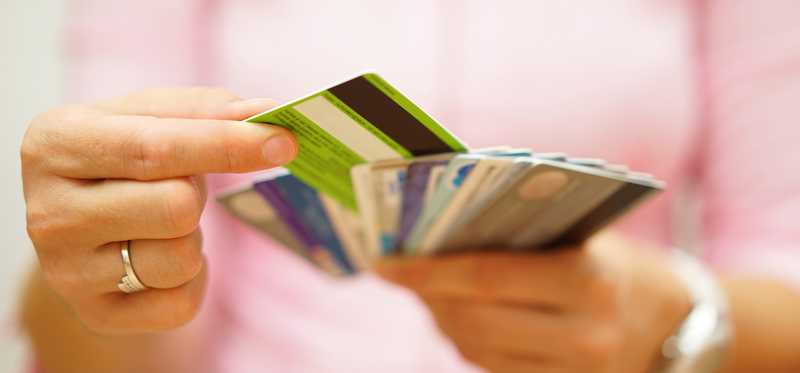
5. Applying for many new credit cards or loans
Every time you apply for a new credit card or loan, the lender does a hard inquiry on your credit report. This drops your score by a few points, which isn't that big of a deal. But if you're applying for new credit frequently, those little hits begin to add up. It also tells lenders you need to borrow money to stay afloat, which can make them wary about working with you.
There is an exception for hard inquiries that take place within about a 30-day period. Credit scoring models understand that most people shop around before opening a new credit card or taking out a new loan, so it's normal to apply for a few different loans or cards. If you get all your applications in within about a month, they'll only count as a single inquiry on your report.
Our credit card expert uses this card, and it could earn you $1,148 (seriously)
As long as you pay them off each month, credit cards are a no-brainer for savvy Americans. They protect against fraud far better than debit cards, help raise your credit score, and can put hundreds (or thousands!) of dollars in rewards back in your pocket each year.
But with so many cards out there, you need to choose wisely. This top-rated card offers the ability to pay 0% interest on purchases until late 2021, has some of the most generous cash back rewards we’ve ever seen (up to 5%!), and somehow still sports a $0 annual fee.
That’s why our expert – who has reviewed hundreds of cards – signed up for this one personally. Click here to get free access to our expert’s top pick.
Previous
Next

6. Cosigning a loan
When you cosign a loan, you're agreeing to accept responsibility for the payments if the primary borrower fails to keep up with them. It's a big decision and something you should only do if you're absolutely sure the borrower is responsible. If they stop paying and don't tell you, the record of the missed payments could wind up on your credit report, too.
You're better off not cosigning loans if you can avoid it. If you decide to anyway, make sure you discuss what will happen if the borrower isn't able to keep up with the payments and check in routinely to make sure they are paying on time.
Previous
Next
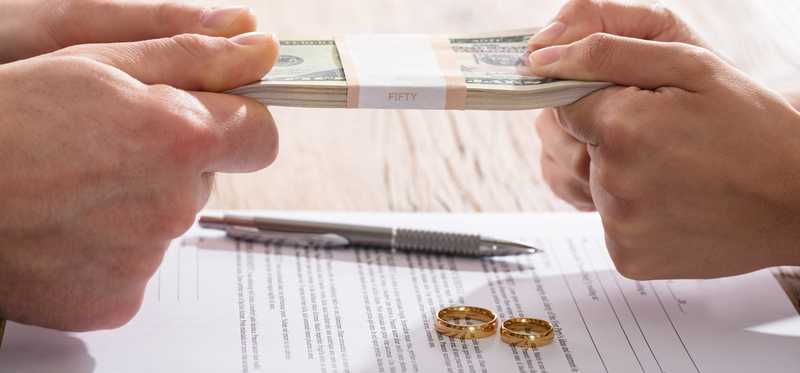
7. Ignoring joint debts in a divorce
Even if a court rules your ex-spouse is responsible for the debt on a joint account, the fact remains your name is still on the account, so it can still affect your credit score. Unfair as it may seem, credit scoring models don't care about divorce rulings or contested debts. They only look at whether or not a debt is paid on time.
Stay in touch with your ex-spouse and agree to a payment schedule to ensure the debt doesn't come back to bite you. If they are not paying, you may have to assume responsibility for it. It's not ideal, but it's better than ruining your credit.
Previous
Next

8. Avoiding credit cards entirely
Credit cards are a great way to build credit, and they also add to your credit mix. This accounts for 10% of your credit score. Lenders like to know you have experience with a variety of credit types, including installment loans and credit cards. It's possible to build credit without credit cards, but you just make things more difficult on yourself.
Use credit sparingly to make sure it helps you and doesn't hurt you. Open a card or two and charge a few small items to it each month. Then pay your bill back in full so you don't have to deal with any interest.
Previous
Next

9. Paying an old debt
If an old unpaid debt resurfaces, you might think you're doing a good thing by making a payment. But sometimes, debts are too old to be enforceable, meaning the debt collector can't legally force you to pay. If you do make a payment, your debt collector will record it, and in many states, that means the old debt is considered new and enforceable again.
Try to pay off the debt in full if you find yourself in this situation. Or file a complaint with the Consumer Financial Protection Bureau if you're being hounded by a debt collector that you believe is acting inappropriately.
Previous
Next

10. Not checking your bank and credit card statements
Routinely review your bank and credit card statements for signs of fraudulent activity or errors. If you notice anything wrong, notify your bank or card issuer right away. This can help prevent these issues from showing up on your credit report and potentially hurting your score in the first place.
Get in the habit of looking over your statements once per month. This can also help you identify possible areas of overspending, which may enable you to cut back and lower your credit utilization ratio or free up more money for paying off credit card debt.
Our credit card expert uses this card, and it could earn you $1,148 (seriously)
As long as you pay them off each month, credit cards are a no-brainer for savvy Americans. They protect against fraud far better than debit cards, help raise your credit score, and can put hundreds (or thousands!) of dollars in rewards back in your pocket each year.
But with so many cards out there, you need to choose wisely. This top-rated card offers the ability to pay 0% interest on purchases until late 2021, has some of the most generous cash back rewards we’ve ever seen (up to 5%!), and somehow still sports a $0 annual fee.
That’s why our expert – who has reviewed hundreds of cards – signed up for this one personally. Click here to get free access to our expert’s top pick.
Previous
Next
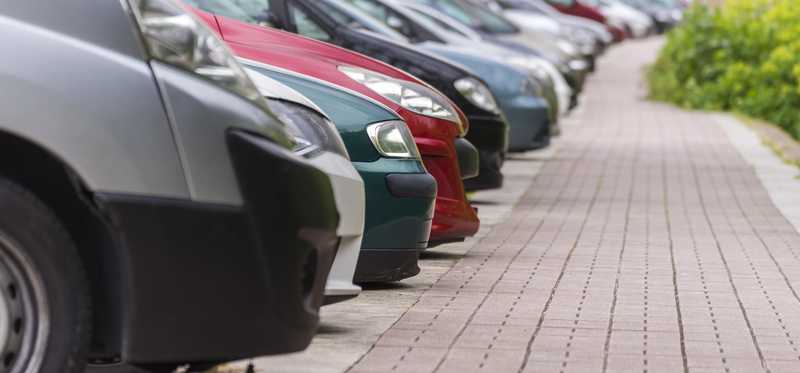
11. Unpaid parking tickets
Parking tickets in and of themselves don't have any effect on your credit score. But if you leave a parking ticket unpaid long enough, your account could end up in collections. Collections accounts can devastate your credit score, so you want to avoid them at all costs. Make sure you pay all of your parking tickets on time or look into setting up a payment plan if you're not able to pay the whole thing right away.
Previous
Next

12. Overdue library books
Overdue library fines can also wind up in collections if you ignore them long enough. You can avoid them by returning your borrowed items on time. Check in with your local library if you believe you have outstanding fines and pay them back as soon as possible so you don't have to worry about them coming back to haunt your credit score.
Previous
Next

It's a lifelong project
You have to constantly work at keeping your credit score high. It's not something that, once achieved, lasts forever. But it shouldn't be too difficult for most people as long as you avoid the mistakes listed above. Pay on time, use credit sparingly and responsibly, and avoid making drastic financial moves, and you should set yourself on a good path.
Previous
Next
Invest Smarter with The Motley Fool
Join Over Half a Million Premium Members Receiving…
- New Stock Picks Each Month
- Detailed Analysis of Companies
- Model Portfolios
- Live Streaming During Market Hours
- And Much More
READ MORE
HOW THE MOTLEY FOOL CAN HELP YOU
-
Premium Investing Guidance
Market beating stocks from our award-winning service
-
The Daily Upside Newsletter
Investment news and high-quality insights delivered straight to your inbox
-
Get Started Investing
You can do it. Successful investing in just a few steps
-
Win at Retirement
Secrets and strategies for the post-work life you want.
-
Find a Broker
Find the right brokerage account for you.
-
Listen to our Podcasts
Hear our experts take on stocks, the market, and how to invest.
Premium Investing Services
Invest better with The Motley Fool. Get stock recommendations, portfolio guidance, and more from The Motley Fool's premium services.